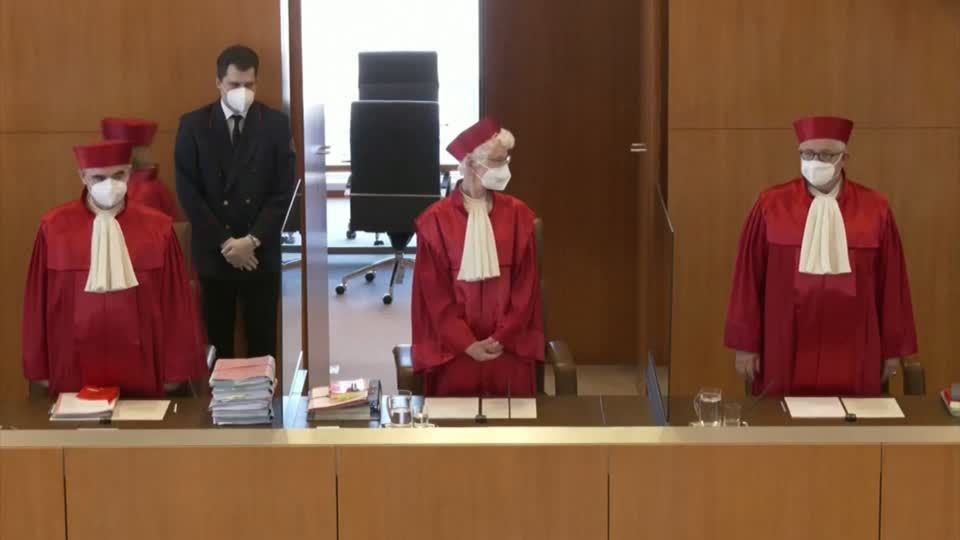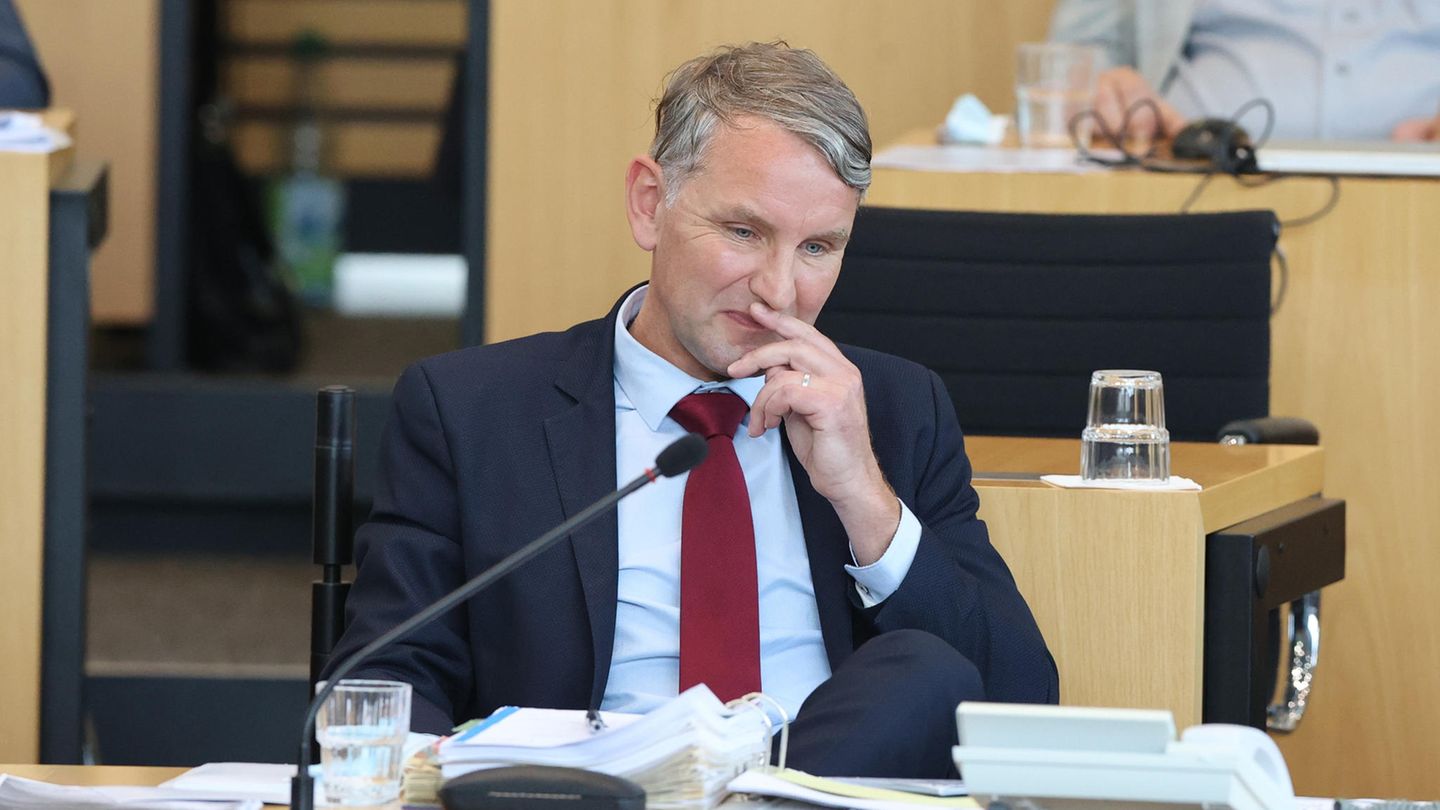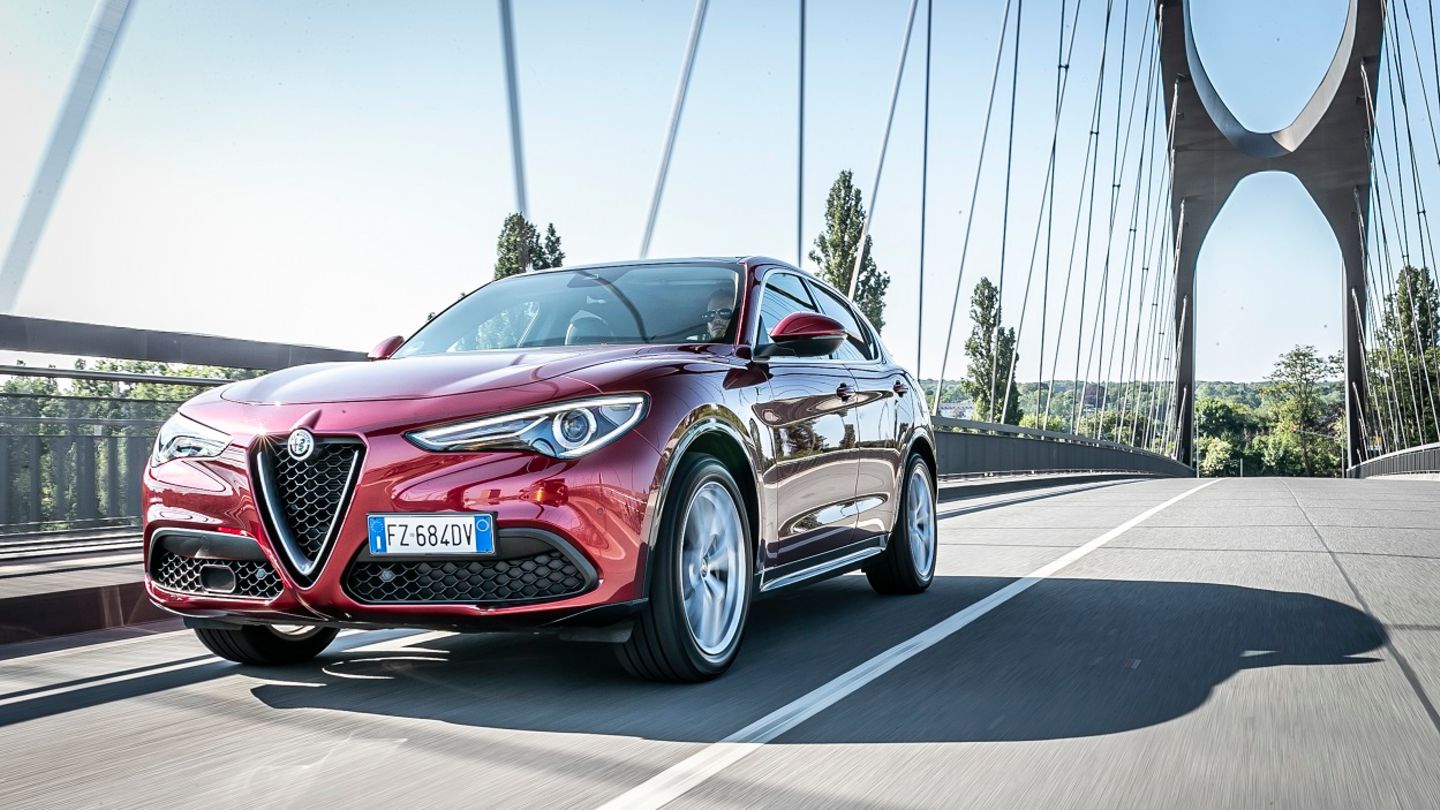With a vote of no confidence, the Thuringian AfD politician Höcke apparently wanted to bring down the red-red-green government of Bodo Ramelow. It was clear that the AfD had no chance. But that was not what he and his parliamentary group wanted at all.
It should be a “symbol”, “a means to an end”, as the Thuringian AfD member Stefan Möller said before the vote of the no-confidence vote in the Thuringian state parliament. The failure of Thuringia’s AfD state and parliamentary group leader Björn Höcke was priced in. The state parliament decided on Friday on a vote of no confidence, which the AfD parliamentary group tried against Prime Minister Bodo Ramelow (left). It failed. Ramelow remains in office. Höcke, whom the AfD had put up as a candidate, received 22 yes-votes and thus as many as the AfD has seats in the Thuringian state parliament. 46 MPs voted against him.
An absolute majority would have been necessary, i.e. 46 votes. Out of reach for Höcke. The 49-year-old is a co-founder of the AfD’s “wing”, which has since been formally dissolved and classified by the Federal Office for the Protection of the Constitution as right-wing extremist. The Thuringian Office for the Protection of the Constitution classified the AfD regional association, whose boss is Höcke, as proven extremist this year.
CDU had “embarrassed itself in the best possible way”
All Thuringian parliamentary groups except the AfD had announced that they did not want to vote for Höcke. As announced, the CDU MPs stayed in their seats and did not vote, which had already brought them a lot of criticism in advance. The parliamentary groups of the Left, SPD, Greens and FDP voted unanimously with no.
Nevertheless, Möller, who is not only a member of parliament, but also co-head of the Thuringian AfD regional association alongside Höcke, sees the vote of no confidence as a success. The CDU had “embarrassed itself in the best possible way,” a sign that Ramelow could be overthrown if the CDU and FDP only wanted was set.
In Thuringia, Germany’s only left-wing Prime Minister Ramelow leads a red-red-green minority government. You are four votes short in parliament. The political situation in the Free State is considered to be extremely complicated.
Political Odyssey in Thuringia
Ramelow’s election last year was already a spasm. A first attempt in February 2020 ended in disaster. At that time, the FDP politician Thomas Kemmerich was elected Prime Minister with votes from the AfD, CDU and FDP. After nationwide outrage, he resigned, Ramelow made it back into office at the second attempt. A contract between Red-Red-Green and the CDU ended a serious government crisis in the state.
But now Thuringia is shaking up political crises again. An agreed resolution of the state parliament, which was supposed to bring about a new election, failed, the CDU no longer wants to deliver reliable majorities in red-red-green. And now the vote of no confidence.
Before the vote, the challenger Höcke accused the CDU of being responsible for the political situation in Thuringia and campaigned – as so often before – to do common cause with his AfD. A poisoned offer, a federal party conference resolution forbids the CDU any cooperation with the AfD. After his failure, Höcke announced that if he had been elected he would have wanted to form an expert government.

“Attack on parliamentarism” and “cheap staging”
Thuringia’s CDU parliamentary group leader Mario Voigt accused the AfD parliamentary group of an “attack on parliamentarism”. “We’re not going to do this cheap staging any more,” said Voigt. The fact that the AfD itself admitted that it actually wanted to present the CDU with the vote strengthened his view that the Union acted correctly, said Voigt.
Möller had previously said that the vote of no confidence was not aimed at Ramelow at all, but primarily at the CDU. The means provided by the constitution are used “for political reasons”. The goals pursued by the AfD had already been achieved before the vote. He would have preferred the CDU to put up its own candidate. He assumes that the AfD parliamentary group would then have chosen this.
According to a government spokesman, Ramelow does not want to comment on the result of the vote. In the past few days, Ramelow said everything there was to be said about this motion and the other challenges that Parliament is facing.
David William is a talented author who has made a name for himself in the world of writing. He is a professional author who writes on a wide range of topics, from general interest to opinion news. David is currently working as a writer at 24 hours worlds where he brings his unique perspective and in-depth research to his articles, making them both informative and engaging.




